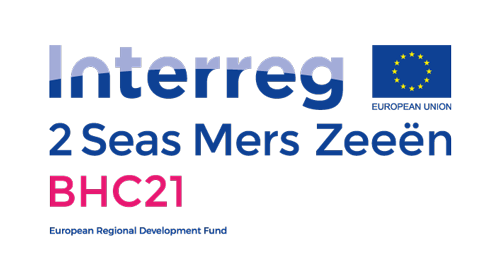When small numbers conflict with big data
When small numbers conflict with big data
Unraveling the collusive dynamic of the shared unconscious belief that low skilled individuals are beyond hope.
Posted
12 July 2021

Innovative methods for training young low-skilled people for employment.
Interreg 2 Seas: Boosting Human Capital 21 (BHC21) Programme, 2020 – 2023
Flanders (Belgium), the Lille region (Northern France) and Kent, have 30,000 to 40,000 young people between the ages of 18 and 24 years old whose school education is incomplete. This group is classified as ‘low-skilled’, difficult-to-place young people, individuals who have dropped to the bottom of social standing. This group evokes an unwillingness by society to help them find a fulfilling direction in life. How do we unravel this collusive dynamic of the shared unconscious belief by society that these individuals are beyond hope and the young person’s belief that they too are hopeless and useless? The social forces that provide opportunities for growth and maturation and their opposing destructive forces, keep thousands of young people stuck with little hope of emerging from this situation.
Few training initiatives that address the learning needs of low-skilled young people inspire confidence. The Tavistock Institute of Human Relations (TIHR) is a partner in a UK syndicate including Kent local authority, MidKent College of Further Education, University of Greenwich, and the Department of Works and Pensions (DWP) that offers skills training and career development know-how. The training is multi-dimensional and includes engineering skills training; ‘Training the Trainers’ (supporting employers); group skills training using Group Relations methodology to develop the young people, and support and coaching for their families. The Tavistock’s Group Relations-informed approach focuses on work-related team skills such as collaboration, leadership and followership, and social problem-solving capabilities.
Our experiential learning approach was new, strange, and perplexing – the participants were suspicious and anxious about talking about their challenging situations; the college venue staff were unused to the fluid, non-directive, noisy, conduct of the groups; and we were anxious that this method would not be sufficiently ‘containing’ for those with serious, life-long problems.
With encouragement, fear of talking in a group was eased and confidence grew. Some people wanted to be open about themselves, but the fear of being ridiculed by their colleagues was strong. They spoke about school and family experiences that had not prepared them for socially constructive living. Hostility towards figures of authority, including Tavistock Institute staff, was accompanied by expressions of phantasies of destroying the world.
A few spoke positively about moving forward, hoping that through safe free expression and group learning they could develop into different people, with positive attitudes. They appreciated this rare opportunity for speaking about serious life matters and being listened to respectfully. Small group work with up to six participants worked well. The participants saw the value of joining and sharing, and they acknowledged learning from one another. The cohort had embraced the method and demonstrated less disruptive behaviour.
The Intergroup Event developed skills in managing relationships between groups which is central to the structures of companies. Joining and participating skills was a unique aspect of the Tavistock programme. Two groups worked on themes of Work, Goals, Plans, and Motivation. They also addressed leadership dynamics that promote the well-being of others, invites people to step up to representative roles and to speak publicly. Results were outstanding.
Summary and Key Learning:
- 48 young low-skilled people attended the public presentations at the offices of the DWP in Kent prior to the first cohort. Of these, 34 signed up to attend the ‘Taster Day’ at the start of the programme, and 28 attended. Of the 28, 24 were accepted onto the programme, but within weeks this number had dropped to 16. Further drop-outs occurred leaving a final figure of seven participants for whom work placements had to be found. The Covid-19 pandemic disrupted the programme, and finally, four participants successfully found work placements that could yet lead to apprenticeships and employment.
- The four participants received support and coaching for the duration of the programme. The EU recommends continuing support for two years after completion of training.
- Is the BHC21 programme worth the costs and effort for placing just four people in employment? We believe that it is exceptionally worthwhile; that the focus of our work must be on developing the individual and influencing the organisational systems they are entering (which we have yet to fully explore), as well as on achieving higher numbers. At the time of writing, similar numbers are occurring in France and Belgium.
- The lesson is that years of neglect during early childhood and adolescence will not be remedied by a short programme that focuses on eye-hand coordination skills alone. The human being is more than the sum of their parts and we need to take a holistic view of their development and provide accordingly. Many participants have had little security from the start of their lives and have had poor role models to sustain them when confronted with external real-world problems. Therefore, to interrupt a vicious cycle of social exclusion, The Tavistock Institute’s role is to boost trainees’ individual capacities to manage their fears about their new work environments, while simultaneously lessening the persecutory ideas their future coaches and employers may have of them.
As part of the BHC21 project, the Tavistock team is finalising a Working Paper on the importance of placement support for the sustainable labour market integration of young people, especially vulnerable young people from disadvantaged backgrounds. This paper will be published on our website shortly.

